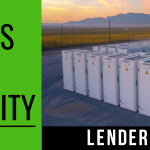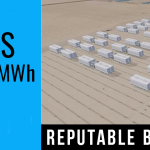 They may not get it this year, but boosters of energy storage technologies want their sector to get the same tax credits that the federal government extends to the wind and solar industries.
They may not get it this year, but boosters of energy storage technologies want their sector to get the same tax credits that the federal government extends to the wind and solar industries.
“It would be a good economic investment for us as a government and as a nation to invest in advancing these technologies,” said Matt Roberts, executive director for the industry’s trade group, the Energy Storage Assn.
Under a bill introduced by Sen. Martin Heinrich (D-N.M.), qualifying energy storage technologies such as batteries, thermal energy storage and regenerative fuel cells would get a 30% investment tax credit.
The Heinrich bill essentially runs parallel with the 30% tax credit that wind and solar receive from the federal government and, like the wind and solar credits, eventually would taper off.
Reps. Michael M. Honda (D-San Jose) and Tom Reed (R-N.Y.) have introduced a similar but more complicated bill in the House of Representatives.
The prospect of a tax credit created some buzz at the Energy Storage North America conference that wrapped up Thursday in San Diego.
“Storage is too expensive,” said Keith Martin, an attorney at the Washington, D.C., law firm of Chadbourne & Parke, one of the panelists at the conference. “If the government can help with the cost-sharing, it will then get more people into the market.”
Under current rules, energy storage can receive a federal tax credit only if it is paired with wind and solar electricity production, most often seen when a storage component is matched with a rooftop solar system.
The proposed legislation would establish tax credits for standalone storage systems.
Extending the tax credit “would encourage deployment of storage throughout our electric power sector,” said Janice Lin, executive director of the California Energy Storage Alliance, an advocacy group. “The consequences of that are dramatic for ratepayers.”





